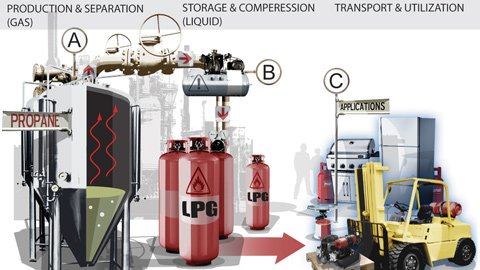Bacteria May Provide the Key to Sustainable Energy
Researchers from the University of Turku have genetically engineered microbes to produce renewable propane for the first time. Their study was published this week in Nature Communications. Propane is a major component of liquid petroleum gas (LPG) with an existing global market for a wide number of applications.

Global fuel is in short supply and there is now a major focus on economically sustainable alternatives. Propane has been suggested as a viable biofuel because it can more easily be separated and stored as a liquid than some other fuel alternatives such as hydrogen, methane or butanol.
The reserchers of the University of Turku, Pauli Kallio, András Pásztor, Kati Thiel, M. Kalim Akhtar and Patrik Jones, have shown for the first time how E. coli can be engineered in the laboratory to produce a synthetic pathway for this fossil fuel.
Researchers manipulated the fatty acid pathway in E. coli and used the organism's own machinery to produce propane in a renewable manner. Although the initial yields were low, the team were able to identify and add essential biochemical components in order to boost the biosynthesis reaction, enabling a specific E. coli strain to synthesize propane in considerable amounts.
Importantly, this propane-generating pathway is able to operate in the presence of oxygen, which opens up avenues for the application of this system in cyanobacteria, a type of bacteria that are powered by solar energy and have minimal nutritional requirements.
An engineered pathway for the biosynthesis of renewable propane
Pauli Kallio, András Pásztor, Kati Thiel, M. Kalim Akhtar, Patrik R. Jones
Published online: 02 September 2014 | doi 10.1038/ncomms5731
>> An engineered pathway for the biosynthesis of renewable propane